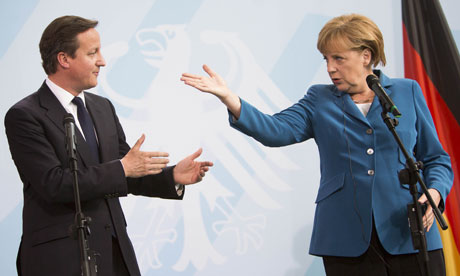
I’ve been thinking a lot about fish.
Not to eat.
Rather, about my hometown of Grimsby, which was at one time the world’s greatest fishing port. That’s based on the fact that a greater tonnage of fish was landed there than anywhere else in the world.
Not anymore.
In fact, now, no fish is landed in Grimsby.
What happened?
The EU happened.
The Common Fisheries Policy enabled the then 9 member EU (now 28) to fish in British territorial waters. Many of those countries are low wage countries. They simply took the business from the British. Ports along the east coast suffered greatly. Is there any wonder they voted to “Leave” the EU?
Many factories closed as they moved their operations to the continent. Cadbury’s is, perhaps, the most famous one. The British chocolate factory moved some years ago to Poland.
At the same time, Britain lost a great deal of its international trade.
Prior to the EU (or EEC as it was called back then (the European Economic Community), Britain’s trade was directed more internationally. “Imperial preferences” gave access to Canada, Australia, New Zealand and South Africa.
Other former colonies lost access to Britain, but later signed the Lome Convention, which gave them lower tariffs when trading with the EU.
It’s doubtful any of these countries will want to go back to Britain when they have access to over 500 million in the European single market.
When Britain applied to join the EEC (originally only six members), other countries did so much trade with Britain; they also applied to join. Denmark and Ireland joined at the same time, January 1st, 1973. When (if) Britain leaves, these two will remain in the EU. This will complicate relations between Ireland and England, as they share a common border. Ireland, which formerly used the British currency, now uses the Euro.
The driving force behind Britain’s application to join the EU was British business. Whereas some businesses lost out, others stood to gain from easier access to the single market. Those companies today are vigorously fighting to “Remain” in the EU. Today (March 29th) was the day Britain was to leave, but the government is still trying to get a “Deal” with the EU, giving them easier access to Europe.
It’s not all one sided, though you would think so from the press. The British have been warned about shortages, long lines of trucks transporting goods to and from Europe, and long lines at airports as they will have to show their passports like everybody else.
The EU will suffer, too, without Britain. The long lines will be just as long at Calais as they will be at Dover, shortages work both ways and airport delays will affect Europeans as much as the British. Additionally, the Europeans will have some serious financial problems, as Britain has been a net contributor to the EU, to the tune of 350 million pounds per week (that’s $462 million). The Germans will feel Britain’s loss more than the others – 20% of German car sales are to the UK. They are also net contributors and will have to come up with more money.
There’s absolutely no reason why Britain has to get a deal with the Europeans now. They should end the uncertainty and just get out, now.
One thing in their favor is that the US, which encouraged Britain to join, is now encouraging the UK to leave. A trade agreement with the US would go at least some of the way to replace the EU.
—————————————————————————
WHITE NATIONALISM
Facebook has banned white nationalist websites.
“Until yesterday, white nationalism was not banned on Facebook. The social network made a distinction between white nationalism and white supremacy, banning the latter and allowing the former. It said nationalism, which advocates for a separation between races, was allowed, while supremacy, which argues that white people are superior to people from other races, was not.” (Daily Telegraph, 3/29)
Now that’s changed. They are both banned.
All this will do is drive white nationalism underground, making it more dangerous.
The solution to white nationalism is to do something about immigration!
BORDER PROBLEMS
The situation on the US-Mexico border is a grave crisis, with more and more families (big families) arriving each day, This is overwhelming for US authorities and will overwhelm schools and health services if everybody is allowed in.
This is going to happen more and more as the high birthrate countries send millions to low birthrate western countries.
One solution is for people in the West to have more children.
Churches should encourage people to “go forth and multiply” (Gen 9:7), thereby addressing the imbalance, and providing the West with the people it needs for expanding economies. They would not then be encouraging so many people to come here.
————————————-
COMPUTER PROBLEMS
I’m going to finish here, as I have a serious computer problem. The second vowel in the alphabet is not printing, making it next to impossible to write anything. I have to go back over what I’ve written and fix it, taking a long time to make a correction.
A visit to the Apple Store should fix it, or I will be looking to buy a new computer

